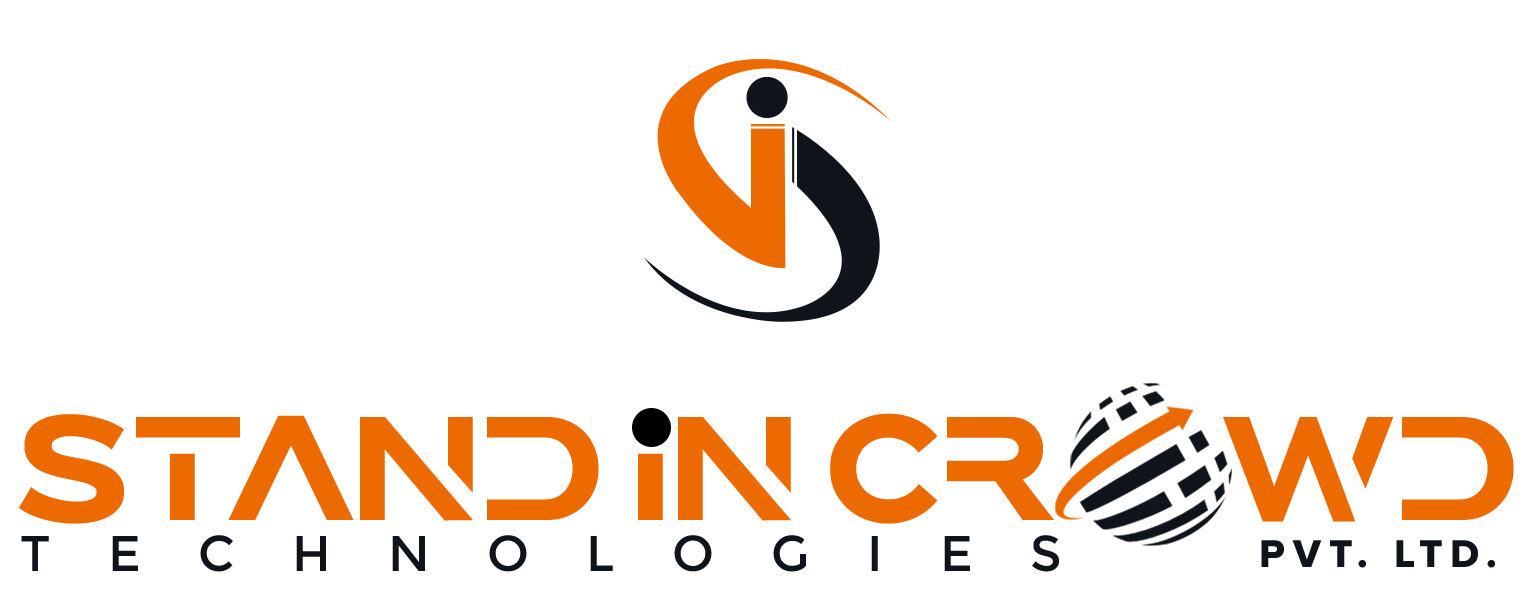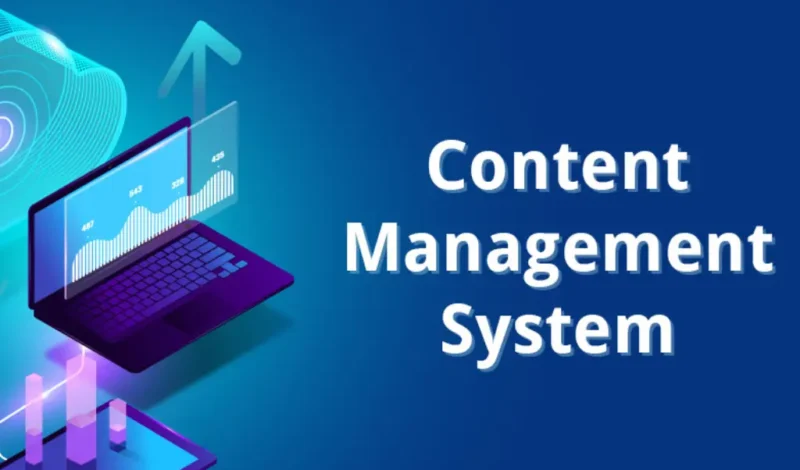Introduction
In today’s digital landscape, a robust online presence is essential for any business looking to stay competitive. Content is at the heart of that presence, and how it is managed plays a significant role in determining the success of a website. This is where Content Management Systems (CMS) come into play. A CMS solution enables businesses to manage, create, and modify content on their websites without requiring technical expertise. For companies like Stand in Crowd Technologies, who are invested in offering top-tier software solutions, choosing the right CMS, including custom CMS solutions, is crucial for optimizing website performance, collaboration, and scalability.
In this blog post, we will explore what CMS solutions are, their benefits, key features to consider, and how to choose the right one for your business.
What is a CMS Solution?

A Content Management System (CMS) is a software application or platform that allows users to create, manage, and modify content on a website without requiring specialized technical knowledge. It serves as a user-friendly interface that separates the design and content of a website, making it easier to update content, manage multimedia elements, and maintain the overall look and feel of the site.
CMS solutions, including custom CMS solutions, are designed to enable a wide range of users—from marketers and business owners to developers and content creators—to collaborate seamlessly. With a CMS, you don’t need to rely on developers for everyday updates like posting blog articles, updating product information, or changing images.
Some of the most popular CMS platforms today include WordPress, Drupal, Joomla, and Shopify, each catering to different needs and industries.
The Importance of CMS Solutions for Businesses
Streamlined Content Management
Content management systems offer an intuitive interface that simplifies managing website content. Whether you’re updating a single page or creating a new blog post, a CMS, including custom CMS solutions, enables users to easily add, edit, or delete content without any coding experience. This flexibility allows teams to focus more on content strategy and less on technical tasks.
Enhanced Collaboration
In a business environment, content creation often involves multiple teams—marketing, design, and development—working together. CMS platforms are built to support collaboration by allowing multiple users to access and manage content at once. Permissions and roles can be assigned to ensure that everyone has access to the tools they need while maintaining control over who can publish content or make changes.
SEO Optimization
Most CMS platforms come with built-in features or plugins designed to help optimize your website for search engines. Tools for adding meta tags, optimizing images, creating clean URLs, and generating sitemaps can greatly improve a website’s visibility on search engines like Google. A CMS solution, including custom CMS solutions, ensures that you have the necessary tools to enhance your website’s search engine ranking without needing a separate SEO expert.
Scalability and Flexibility
As businesses grow, their digital needs evolve. CMS solutions, including custom CMS solutions, offer scalability by providing a wide range of plugins, themes, and add-ons that can be integrated into your website as your business expands. Whether it’s adding e-commerce functionality, custom forms, or advanced analytics, a CMS gives you the flexibility to scale your website and add new features seamlessly.
Cost-Effectiveness
By reducing the need for constant developer involvement, CMS solutions significantly reduce the costs associated with website maintenance and updates. Non-technical staff can take care of content management tasks, freeing up your development team to focus on more complex issues, thus saving time and money.
Security and Updates
Many CMS platforms, including WordPress and Drupal, are continuously updated to fix bugs, improve performance, and enhance security. Regular updates are important for preventing security breaches and keeping the site running smoothly. Additionally, CMS platforms often provide security features like built-in encryption, multi-factor authentication, and user roles to safeguard sensitive data.
Key Features to Look for in a CMS Solution

When evaluating CMS solutions, including custom CMS solutions, for your business, it’s important to consider the following key features:
Ease of Use
The CMS should have a user-friendly interface that allows even non-technical users to navigate easily. A simple, intuitive dashboard can significantly reduce the learning curve and speed up the content creation process.
Customization and Design Flexibility
Look for a CMS that offers customization options such as the ability to choose from a range of themes or templates, or the option to create a completely custom design. The more flexibility you have in designing your website, the more you can make it align with your brand identity.
Mobile Optimization
In today’s mobile-first world, it’s important that your CMS allows you to create mobile-friendly websites. Responsive design features or mobile optimization plugins are essential to ensuring that your website looks great and functions properly on all devices.
Integration Capabilities
Your CMS should be able to integrate with other business systems, such as CRM software, email marketing platforms, or social media tools. Seamless integration ensures that your website works in harmony with other systems and helps you streamline your digital marketing efforts.
Security Features
Security is critical for protecting your business, especially if you’re handling sensitive customer information. Look for a CMS that provides security measures such as SSL certificates, two-factor authentication, regular updates, and backup options.
Analytics and Reporting
Built-in analytics and reporting tools can help track key performance metrics, such as website traffic, bounce rate, and conversions. Having these insights directly within the CMS can help you make informed decisions about your website’s performance and content strategy.
Multilingual Support
If your business operates in different regions or serves a global audience, a CMS with multilingual capabilities is important. This feature allows you to create and manage content in multiple languages, expanding your reach and improving user experience.
E-commerce Capabilities
For businesses looking to sell products online, an integrated e-commerce feature is essential. Many CMS platforms, such as Shopify or WooCommerce for WordPress, offer built-in e-commerce solutions for product management, payment gateways, and order tracking.
How to Choose the Right CMS for Your Business
Evaluate Your Business Needs
Start by identifying your website’s goals. Are you running an e-commerce store, a blog, or a corporate website? Knowing your specific requirements will help you select a CMS, including custom CMS solutions, that meets those needs effectively.
Consider the Technical Expertise of Your Team
Choose a CMS that aligns with your team’s technical capabilities. If your team is composed of non-technical users, a CMS with a simple and intuitive interface, like WordPress, might be the best choice. On the other hand, if you have a dedicated technical team, you may be able to leverage more complex solutions, such as Drupal or Joomla.
Check for Support and Community
Make sure the CMS you choose has a strong support system, including documentation, tutorials, and an active community. A large user base and developer community can provide valuable resources for troubleshooting and enhancing your website.
Consider Future Growth
As your business grows, so will your website needs. Ensure that the CMS you choose, including custom CMS solutions, is scalable and capable of accommodating future expansion, whether it’s adding new features, handling higher traffic, or integrating with new software tools.
Look for Security Features
Your website’s security is paramount. Ensure the CMS offers features like SSL encryption, regular updates, and strong access control options. Security plugins or built-in tools should be available to help safeguard your website from potential threats.
Test the CMS Before Committing
Most CMS platforms offer free trials or demo versions. Take advantage of this to test the user interface, design flexibility, and features before making a final decision. This will help you gauge how well the platform fits your business requirements.
Conclusion
CMS solutions, including custom CMS solutions, are powerful tools that empower businesses to efficiently manage their websites, enhance collaboration, and scale as they grow. Whether you’re a small business looking to establish an online presence or a large organization seeking to improve your digital strategy, choosing the right CMS can make a significant impact on your success.
Get Started Today


